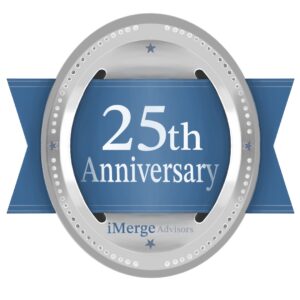Team M&A Firm
Transaction Experience is paramount to getting all you deserve in a deal
Contact Us

Michael Gravel
Michael is the founder and managing partner of iMerge Advisors and brings nearly 30 years of senior-level executive operations, fundraising, private equity, venture capital, M&A, and investment banking experience within the technology sector. also Team M&A Firm Prior to the founding of iMerge, Michael spent ten years in senior executive positions for financial software technology firms such as Bankers Systems (Acquired by Wolters Kluwer) Sungard International, PCi Corporation (Acquired by Wolters Kluwer), Logica (Acquired by CGI). In addition, as an executive with these companies, he managed and integrated several acquisitions.
At iMerge, Michael’s extensive experience and exceptional skill set have made him an invaluable asset. Over the past 25 years, he has successfully executed more than 125 transactions in the small to mid-size software and technology sector, totaling over $1 billion in value. Michael’s expertise, combined with his dedication to his clients, has cemented his position as a trusted advisor in the industry.
Beyond his professional life, Michael is actively engaged in several charitable organizations, demonstrating his commitment to making a positive impact on society. Notably, he is involved in the Big Brother/Big Sister program, where he has touched the lives of countless individuals. His efforts have been recognized by the organization, which awarded him their highest honor, Big Brother of the Year. Through his work at iMerge and his community involvement, Michael continues to demonstrate his passion for helping others and contributing to a better world.
Michael holds a BA in Psychology and Finance from the University of Massachusetts, Amherst.

Todd Lorbach
At iMerge Advisors, Todd Lorbach serves as a managing director, bringing with him a wealth of transaction expertise gained from his 25 years of experience in software, private equity, negotiation, and international strategies. Before joining iMerge, Todd spent eight years as the senior international sales and operations executive for Datastream Systems, an EAM software firm. In this role, he established offices in London, Sydney, and Monterrey, and formed strategic partnerships with 18 international distributors.
Todd’s global experience also includes living in London, Rotterdam, Munich, and Singapore for five years as Datastream acquired four international competitors and an Australian distributor using funds from an initial public offering (Nasdaq: DSTM; acquired by Infor) and a secondary offering.
His accomplishments extend to providing funding for seven start-up ventures and advising an investment fund from concept creation through the acquisition of five entities. Todd has also executed 18 sell-side transactions for a Morgan Stanley portfolio. At iMerge, Todd has successfully completed dozens more transactions. In addition to these achievements, he funded a research organization that developed award-winning wellness programs for underprivileged seniors.
Todd holds a BA in Finance & Accounting from Clemson University, showcasing his strong foundation in the financial sector. With his extensive experience and dedication to making a positive impact, Todd is a valuable member of the iMerge Advisors team.
Contact Us
M&A Advisory services
Professionalism & Integrity
Professionalism and integrity are simple baselines that are expected by clients throughout the mergers & acquisitions industry. We aim to vastly exceed those expectations.
Our m&a advisory services are based solely on what is best for you as our client and not what would benefit the firm’s bottom line.
In addition, we understand our client’s personal objectives and needs while guiding them through this intensive and sometimes emotional process.
Dealmaker Insights
What are some red flags a buyer might find in our legal, IP, or financial documents during due diligence, and how can we address them proactively?
Summary of:
Red Flags in Legal, IP, and Financial Due Diligence — And How to Address Them Proactively
In the world of software and technology M&A, due diligence is where deals are made—or quietly fall apart. For founders and CEOs preparing for an exit, understanding what buyers scrutinize in your legal, intellectual property (IP), and financial documentation is not just a defensive move—it’s a strategic one.
At iMerge, we’ve seen otherwise promising deals stall or collapse due to avoidable red flags. The good news? Most of these issues can be identified and resolved well before a buyer ever sees your data room. Below, we outline the most common red flags across legal, IP, and financial domains—and how to proactively mitigate them to preserve valuation and deal momentum.
1. Legal Red Flags: Contracts, Compliance, and Corporate Structure
Common Issues
- Unclear ownership of equity or cap table discrepancies
- Missing or poorly drafted customer, vendor, or employment agreements
- Non-compliance with data privacy laws (e.g., GDPR, CCPA)
- Pending or threatened litigation
- Improper entity formation or foreign subsidiary issues
Proactive Solutions
- Clean up your cap table: Ensure all equity grants, SAFEs, convertible notes, and option pools are properly documented and reconciled. If you’ve had multiple rounds of financing, consider a third-party cap table audit.
- Standardize contracts: Use consistent, lawyer-reviewed templates for customer and vendor agreements. Ensure all key contracts are signed, stored, and easily accessible.
- Review compliance posture: Conduct a privacy and compliance audit, especially if you handle user data. Buyers will expect clear policies and evidence of adherence to applicable regulations.
- Resolve legal disputes early: Even minor litigation can spook buyers. If possible, settle or disclose any legal matters with clarity and documentation.
As we noted in Completing Due Diligence Before the LOI, addressing these issues early can significantly reduce friction during the negotiation phase and increase buyer confidence.
2. Intellectual Property Red Flags: Ownership, Protection, and Infringement Risk
Common Issues
- Unclear IP ownership—especially from contractors or former employees
- Open-source software usage without proper licensing documentation
- Missing or expired trademarks, patents, or domain registrations
- Inadequate IP assignment agreements
Proactive Solutions
- Audit IP ownership: Confirm that all code, content, and inventions are owned by the company—not by freelancers, founders, or third parties. Ensure all contributors have signed IP assignment agreements.
- Document open-source usage: Maintain a clear inventory of open-source components and their licenses. Buyers will want to know you’re not exposed to copyleft risks (e.g., GPL).
- Register and renew IP assets: Ensure trademarks, patents, and domains are registered in the company’s name and are current. This is especially critical for SaaS and consumer-facing platforms.
Buyers often ask, “How do I protect my IP during buyer due diligence?” (source). The answer starts with having clean, well-documented IP ownership and usage policies in place long before diligence begins.
3. Financial Red Flags: Quality of Earnings, Revenue Recognition, and Accounting Practices
Common Issues
- Inconsistent or non-GAAP financials
- Improper revenue recognition—especially for SaaS or subscription models
- Deferred revenue not properly accounted for
- Unexplained fluctuations in margins or customer churn
- Commingled personal and business expenses
Proactive Solutions
- Prepare GAAP-compliant financials: Even if you’re not required to, aligning your financials with GAAP standards signals maturity. Consider a Quality of Earnings (QoE) report to validate your numbers.
- Clarify revenue recognition policies: SaaS companies should clearly define how and when revenue is recognized. Misalignment here can lead to valuation haircuts or earn-out structures.
- Separate personal and business expenses: Clean books are essential. If you’ve run personal expenses through the business, normalize them and be transparent in your financial disclosures.
- Track key SaaS metrics: Buyers will scrutinize metrics like ARR, MRR, CAC, LTV, and churn. Ensure your data is accurate and benchmarked. For more, see SaaS Key Performance Metrics and Valuation Multiples.
Financial red flags are among the most damaging because they directly impact valuation. As we’ve discussed in Website Valuation and Discretionary Earnings, buyers will discount for risk—and unclear financials are a major source of it.
4. Cultural and Operational Red Flags: The Intangibles That Matter
While not always documented, buyers increasingly assess cultural and operational fit. Red flags here include:
- Key person risk: If the business is overly reliant on a founder or CTO without a succession plan
- High employee turnover or poor Glassdoor reviews
- Inconsistent internal reporting or lack of KPIs
These issues can be addressed by building a strong second layer of leadership, documenting processes, and fostering a transparent, data-driven culture. Buyers want to see that the business can scale—and survive—without its founders at the helm.
Final Thoughts: Preparation Is the Best Defense
Red flags don’t always kill deals—but they do slow them down, reduce leverage, and often lead to price adjustments or unfavorable terms. The most successful exits we’ve advised at iMerge are those where founders took the time to anticipate buyer concerns and address them proactively.
Whether you’re 12 months from a sale or just beginning to explore your options, a pre-diligence audit across legal, IP, and financial areas is a smart investment. It not only protects value—it creates it.
Founders navigating valuation or deal structuring decisions can benefit from iMerge’s experience in software and tech exits — reach out for guidance tailored to your situation.
We had a few early contractors who never signed IP assignment agreements. How big of an issue is that during due diligence, and what can we do now to fix it?
Summary of:
Unassigned IP from Early Contractors: A Hidden Risk in M&A Due Diligence
In the early days of a startup, speed often trumps structure. Founders focus on building product, acquiring users, and iterating fast. Legal formalities—like intellectual property (IP) assignment agreements—can fall by the wayside. But when it comes time to sell your software company or raise institutional capital, those early oversights can become material liabilities.
One of the most common red flags that surfaces during M&A due diligence is the lack of signed IP assignment agreements from early contractors or freelancers. If your company is in this position, you’re not alone—but it’s critical to understand the implications and take corrective action before entering serious deal discussions.
Why IP Assignment Matters in M&A
Buyers—especially strategic acquirers and private equity firms—are buying more than just revenue. They’re acquiring the underlying technology, codebase, and proprietary assets that drive your business. If you can’t prove that your company owns the IP outright, it introduces legal uncertainty and potential future claims.
Here’s how this issue typically plays out during diligence:
- Buyers request a full IP chain of title. This includes employment and contractor agreements with IP assignment clauses for anyone who contributed to the codebase or product.
- Missing agreements trigger legal review. If early contributors never assigned their rights, the buyer’s legal team may flag this as a material risk.
- Deal terms may be adjusted. Buyers may demand indemnities, escrow holdbacks, or even reduce the purchase price to account for the risk.
In some cases, the deal can stall or fall apart entirely if the IP ownership can’t be cleaned up. As we’ve seen in multiple transactions at iMerge, even a single missing agreement from a key early developer can create disproportionate friction late in the process.
How Big of a Problem Is It, Really?
The severity depends on several factors:
- Materiality of the contractor’s contribution. If the individual wrote core code or designed foundational architecture, the risk is higher.
- Time elapsed since the work was done. If the contractor hasn’t been involved in years and the code has since been rewritten, the risk may be lower—but still not zero.
- Jurisdiction and legal precedent. In some states (like California), work-for-hire presumptions are weaker, and explicit assignment is required.
Buyers will also consider whether the contractor was paid, whether there’s any written agreement at all (even if it lacks IP language), and whether the individual is likely to assert a claim. But make no mistake: this is a diligence item that can materially impact deal certainty and valuation.
What You Can Do Now to Fix It
Fortunately, this is a solvable problem—if addressed proactively. Here’s a step-by-step approach:
1. Identify All Early Contributors
Start by compiling a list of all non-employee contributors—freelancers, contractors, agencies—who worked on your product, codebase, or IP. Focus especially on the first 12–24 months of the company’s life.
2. Audit Existing Agreements
Review whether any of these individuals signed contracts, and if so, whether those contracts include IP assignment clauses. If you used a freelance platform (like Upwork), check their standard terms—some include default IP transfer provisions, but not all.
3. Reach Out for Retroactive Assignments
For any gaps, reach out to the individuals and request that they sign a retroactive IP assignment agreement. These are standard legal documents that confirm the contractor assigns any rights they may have had to the company. In many cases, former contractors are cooperative—especially if they were paid and have no ongoing interest in the IP.
Be prepared to offer a nominal payment or consideration if needed. This can help ensure enforceability and goodwill.
4. Document Everything
Keep a clean record of all signed agreements, communications, and payment history. This will be invaluable during diligence. If you’re unable to locate a contractor or they refuse to sign, document your efforts and consult legal counsel on next steps.
5. Work with Counsel to Mitigate Residual Risk
If you can’t obtain full assignments from all parties, your legal team can help draft representations, warranties, and indemnities that address the issue. In some cases, buyers may accept a risk-adjusted solution if the exposure is well understood and limited in scope.
Proactive IP Hygiene Increases Valuation
At iMerge, we’ve seen firsthand how early legal cleanup can increase deal confidence and reduce friction. In one recent transaction, a SaaS company had three early developers who never signed IP agreements. By proactively securing retroactive assignments before going to market, the company avoided a potential 10% escrow holdback and closed the deal on schedule.
As we’ve outlined in our Top 10 Items to Prepare When Selling Your Website, clean IP ownership is one of the most scrutinized areas in software M&A. It’s also one of the most fixable—if addressed early.
For founders considering a future exit, this is a prime example of why exit planning strategy should begin well before you engage buyers. Firms like iMerge help clients identify and resolve these issues in advance, so they don’t become deal-breakers later.
Conclusion
Unassigned IP from early contractors is a common but serious issue in software M&A. While it may seem like a minor oversight, it can create real legal and financial risk during due diligence. The good news: with the right approach, it’s usually fixable.
Start by identifying the gaps, securing retroactive assignments, and documenting your efforts. The earlier you address this, the more leverage you’ll have when it matters most—at the negotiating table.
Founders navigating valuation or deal structuring decisions can benefit from iMerge’s experience in software and tech exits — reach out for guidance tailored to your situation.
Our startup handles a lot of user data. What privacy, security, or compliance documentation will acquirers expect us to provide (e.g., GDPR policies, SOC 2 certification)?
Summary of:
What Privacy, Security, and Compliance Documentation Will Acquirers Expect?
For software startups handling significant volumes of user data, privacy and security compliance is no longer a back-office concern — it’s a core value driver in M&A. Whether you’re preparing for a strategic exit or simply fielding inbound interest, acquirers will scrutinize your data governance posture with the same rigor they apply to financials or IP ownership.
In this article, we’ll outline the key privacy, security, and compliance documentation that buyers — especially private equity firms and strategic acquirers — expect to see during due diligence. We’ll also explore how early preparation in these areas can materially impact valuation and deal certainty.
Why Data Compliance Is a Deal-Maker (or Breaker)
In today’s regulatory environment, data is both an asset and a liability. A well-documented compliance program can enhance buyer confidence, reduce indemnity holdbacks, and even justify a premium valuation. Conversely, gaps in data protection — or worse, a breach history — can derail a deal or lead to significant post-closing exposure.
Firms like iMerge often advise software founders to treat data compliance as a precondition to exit readiness, not a post-LOI scramble. As we’ve seen in numerous transactions, the presence (or absence) of key documentation can influence everything from buyer interest to final purchase price.
Core Documentation Buyers Expect
Below is a breakdown of the most commonly requested privacy, security, and compliance documentation during M&A due diligence for data-centric startups:
1. Data Privacy Policies and Regulatory Compliance
- GDPR Compliance Documentation – If you have users in the EU, buyers will expect to see your Article 30 records of processing activities, data subject access request (DSAR) procedures, and lawful basis assessments.
- CCPA/CPRA Compliance – For California users, documentation around consumer rights, opt-out mechanisms, and data sale disclosures is essential.
- Privacy Policy (Public-Facing) – A clear, up-to-date privacy policy that aligns with your actual data practices is a must. Buyers will compare this to your internal procedures.
- Data Processing Agreements (DPAs) – Contracts with vendors and subprocessors that handle personal data, especially if hosted on third-party infrastructure (e.g., AWS, Google Cloud).
2. Security Frameworks and Certifications
- SOC 2 Type II Report – This is increasingly viewed as the gold standard for SaaS companies. It demonstrates that your controls are not only designed effectively but have operated effectively over time.
- Pentest Reports and Remediation Logs – Buyers will want to see recent penetration testing results and evidence that vulnerabilities were addressed.
- Security Policies and Incident Response Plans – Internal documentation covering access controls, encryption standards, employee training, and breach response protocols.
- Third-Party Risk Management – A list of vendors with access to sensitive data, along with your vetting and monitoring procedures.
3. Data Governance and Operational Controls
- Data Retention and Deletion Policies – How long do you store user data, and how is it deleted upon request or inactivity?
- Access Logs and Audit Trails – Evidence that access to sensitive data is monitored and restricted on a need-to-know basis.
- Employee Onboarding/Offboarding Procedures – Especially for roles with access to production environments or customer data.
4. Risk Assessments and Breach History
- Risk Assessments – Internal or third-party assessments of your data security posture, including any mitigation plans.
- Incident Logs – A record of past security incidents, how they were handled, and what changes were made afterward.
- Cyber Insurance Policies – Coverage details, limits, and exclusions related to data breaches or regulatory fines.
How This Impacts Valuation and Deal Structure
From a buyer’s perspective, strong compliance documentation reduces perceived risk — and risk is a key input in valuation models. For example, a SaaS company with a clean SOC 2 report and GDPR compliance may command a higher multiple than a peer with similar revenue but weaker controls.
Moreover, buyers may adjust deal terms based on compliance maturity. A lack of documentation could lead to:
- Increased escrow or indemnity holdbacks
- Delayed closing timelines due to extended diligence
- Lower valuation due to perceived regulatory exposure
As we noted in Completing Due Diligence Before the LOI, addressing these issues proactively can streamline negotiations and reduce surprises post-LOI.
Case Example: A SaaS Exit Delayed by Compliance Gaps
Consider a mid-market SaaS company with $8M ARR and a strong customer base in Europe and North America. The company received a compelling acquisition offer from a strategic buyer. However, during diligence, the buyer discovered that the company lacked a formal data processing inventory and had no documented DSAR process — a red flag under GDPR.
As a result, the buyer paused the deal, requested a third-party compliance audit, and ultimately reduced the offer by 10% to account for remediation costs and regulatory risk. The deal still closed, but the founders left money on the table — a preventable outcome had they invested in compliance readiness earlier.
Preparing for Exit: A Strategic Approach
For founders considering a sale in the next 12–24 months, now is the time to invest in compliance infrastructure. Here’s a practical roadmap:
- Conduct a Data Compliance Audit – Identify gaps in your privacy, security, and governance practices.
- Prioritize Certifications – If you’re targeting enterprise buyers, a SOC 2 Type II report can be a differentiator.
- Document Everything – Buyers don’t just want to hear that you’re compliant — they want to see it in writing.
- Engage Advisors Early – M&A advisors like iMerge can help you position your compliance posture as a value driver, not just a checkbox.
For more on preparing your company for sale, see our guide on Top 10 Items to Prepare When Selling Your Website, which includes a broader checklist beyond compliance.
Conclusion
In today’s M&A landscape, privacy and security compliance is no longer optional — it’s foundational. Buyers expect clear, auditable documentation that demonstrates your commitment to protecting user data and managing risk. The earlier you build this into your operating model, the more leverage you’ll have when it’s time to negotiate.
Founders navigating valuation or deal structuring decisions can benefit from iMerge’s experience in software and tech exits — reach out for guidance tailored to your situation.






